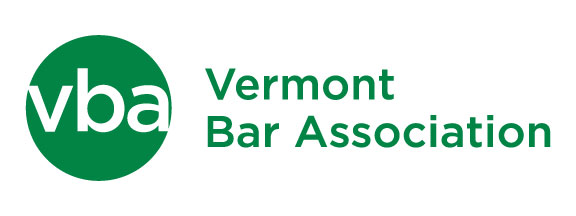11-01 An attorney who is a principal owner of a separate online service for the organization and storage of personal information and documents may refer clients and others to the service provided that the attorney takes objectively reasonable measures to assure that the referred individuals know that this law related online services does not provide legal services and that the protections of the client-lawyer relationship do not exist.
09-08 An attorney licensed to practice in Vermont with active status is engaged in the practice of law and governed by the Vermont Rules of Professional Conduct (the “VRPC”) when accompanying disabled beneficiaries of his organization to court for matters where by commission or omission of an attorney’s duties the beneficiary’s rights may be affected, even though the attorney does not hold himself out as an attorney; such attorney must disclose his status and behave accordingly.
09-02 The inquiring attorney wishes to offer non-legal services in addition to the attorney’s law practice. The non-legal services would be in the nature of financial planning for college costs and might involve the sale of insurance products. In order to carry out this plan within the Rules, the attorney would have to act carefully to insure that the clients of the financial planning business would not be under the impression that they were receiving legal advice. In addition, to maintain separation, separate billing for law-related services and legal services should be practiced.
00-09 An attorney who is employed by a public corporation, and who will not be providing legal services or practicing law in this capacity for either the corporation or clients, may properly indicate on a business card, and in signing correspondence, that he or she possesses a J.D. degree, and may also use the identifying designation of “Esq.”, with a disclaimer in appropriate cases.
00-08 An attorney who works as a human resources consultant, and who will not be providing legal services or practicing law in this capacity may properly identify himself as holding a “J.D.” degree, and refer to his prior legal experience as a practicing attorney in conjunction with his consulting business, providing that he informs the clients with whom he has dealings that he is not acting as an attorney, and that no attorney-client relationship exists.
99-08 A lawyer who is also a physician may indicate on his/her letterhead that he/she is both an attorney and a physician.
97-14 Lawyer A must withdraw from any further participation as a member of a municipal zoning board in all proceedings related to a particular conditional use application, where Lawyer B, a member of Lawyer A’s firm, represents clients who have challenged the zoning board’s jurisdiction to reconsider an earlier decision that had been favorable to the interests of Lawyer B’s clients. Similarly, Lawyer B has a non-waivable duty to withdraw from further representing clients in a matter on which Lawyer A had participated in a quasi-judicial capacity.
93-10 An attorney may conduct a legal practice and real estate brokerage from the same office. An attorney may advertise his or her real estate business by stating he or she is also an attorney and has represented buyers and sellers for a number of years. An attorney may represent to the clients and customers of his or her real estate business that he or she is an attorney with experience in real estate transactions.
92-02 The lawyer who performs statutory duties as an assistant judge: (1) should not practice law in the court, hearing rooms and chambers where the lawyer sits as judge; (2) should not practice law in a court where the nonjudicial duties and responsibilities make that lawyer a functioning member of the court and affects that lawyer’s independent judgment and/or creates an appearance of impropriety. In addition, when that lawyer is disqualified from providing representation to a particular client or in a particular court, all lawyers affiliated with that lawyer are disqualified to the same extent.
91-08 An attorney is entitled to represent a private client seeking financing through a lending agency in which the attorney sits on the Board of Directors provided that: (1) the attorney does not participate in any part of the process which determines the client’s eligibility for the loan (e.g., the loan review process, voting on approval of the loan, etc.); and, (2) the attorney, at the outset, fully discloses to the private client and to the bank his representation of the client and, after full disclosure to the client of potential conflicts that could arise, both parties consent to his representation.
88-10 An attorney may indicate that he or she is licensed in other professions on letterheads, business cards and advertising.
83-02The Code prohibits listing the practice of another profession on letterhead, business cards or office sign. In determining responsibilities in this area, the lawyer should consult court decisions on the constitutionality of advertising restrictions.
81-09An attorney may carry on the practice of law while also acting as a real estate broker, as long as he/she observes the restraints on dual professions delineated in DR 2-102(E).
79-16 Attorney representing seller or real estate and as agent for sale of title insurance

